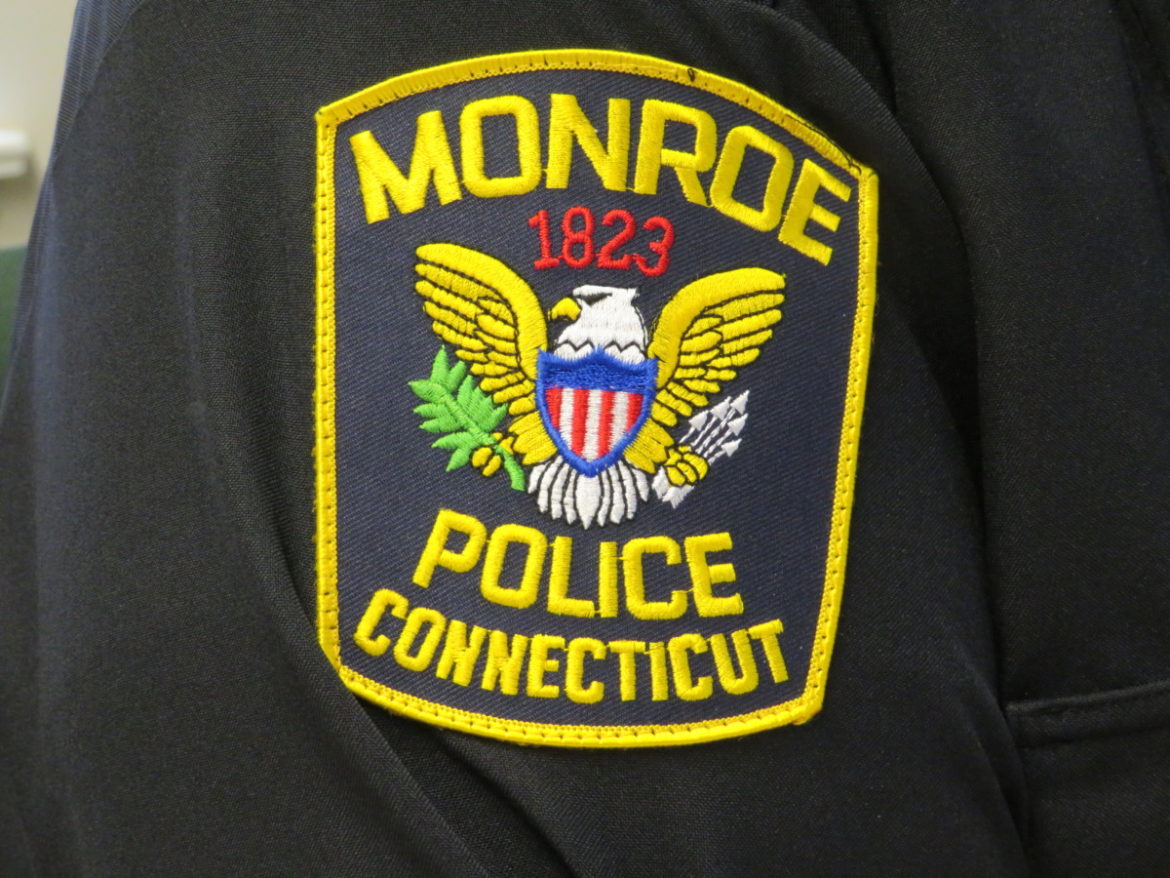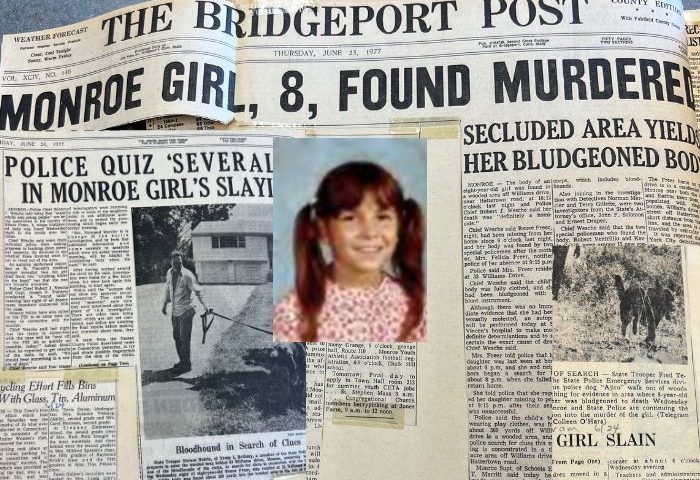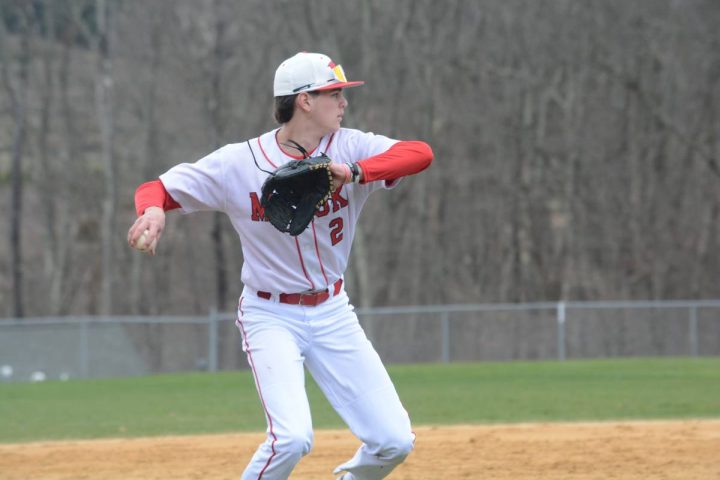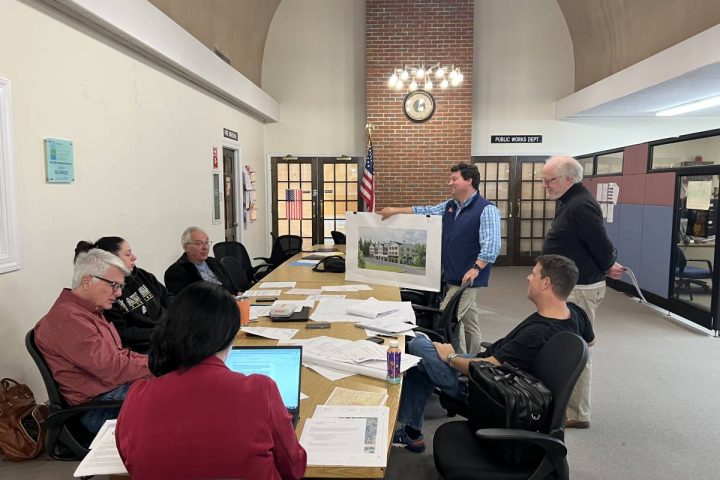MONROE, CT — The national outrage over the killing of George Floyd at the hands of police in Minneapolis caused many to question the Monroe Police Department’s use of force policies here at home.
Chief John Salvatore answered questions at a Town Council meeting Monday night and Thursday his department posted its policies on its Facebook page.
Monroe police officers received one unfounded complaint of excessive force over the last two-and-a-half years and data collected by the state on every traffic stop showed no racial disparities over the last four years, according to Salvatore.
“We use a lot of verbal persuasion,” he said, “and if there is even a minor disturbance, we send more than one officer to a call. I think that is a de-escalating technique.”
Though Councilwoman Jennifer Aguilar said she agreed with Councilman Terry Rooney’s praise of the job Monroe’s officers do, she posed questions to Salvatore at Monday’s meeting on behalf of her constituents.
Salvatore said the police department’s policies on use of force do not include choke holds, which is deadly force that should only be used to save a life. He said it is also never taught to police recruits as a legitimate maneuver.
The excessive force complaint Monroe police received was filed by someone who was under the influence of alcohol during a medical call, according to Salvatore. An internal investigation found video from officers’ body cameras showing a relative explaining how the patient had sustained bruises days before the call, he said.
The incident did not result in an arrest, but Salvatore said officers had to restrain the person from hurting EMS personnel attempting to provide care.
Salvatore said his officers are required to fill out a report on every case where force is used beyond putting handcuffs on a suspect. Every instance is investigated to determine whether the force was necessary and reports are submitted to the state, which reviews the data to determine if there are any patterns.
Use of force could be anything from wrenching a suspect’s arm to put handcuffs on to using a taser.
The chief reviews all administrative investigations, sometimes disagreeing with aspects of it, asking for more information or mentioning other policies that apply. In this case, Salvatore agreed the complaint was unfounded.
No racial profiling found
Police are often accused of racial profiling, stopping drivers for minor infractions because they are black.
“I like to believe we don’t racially profile,” Salvatore said. “People we’re stopping at night, we can’t tell who’s driving the car after dark. Officers often don’t know that until they walk up to the window.”
Data on traffic stops gathered over the last four years appears to support Salvatore’s belief.
Whenever a Monroe police officer initiates a traffic stop, a computer system is activated in the police cruiser and the call cannot be closed until the officer enters data on the race and ethnicity of the driver.
Once a year, the Institute for Municipal and Regional Policy reviews the data and sits down with police departments where they see a problem. In the last four years, the institute held a review with the Monroe Police Department once.
But after taking a closer look at the routes, Salvatore said the institute found it was an anomaly, with a little disparity on main routes, such as Route 25 and 111, often including drivers from out of state.
“They found nothing improper,” he said.
Diversity in hiring
Aguilar asked Salvatore if there is a civilian review board in town. Salvatore said no, but added there is independent oversight from the Board of Police Commissioners, whose members are appointed by the first selectman and approved by the Town Council. The board also has minority party representation.
Aguilar also asked if anything is being done to promote racial diversity in the hiring of Monroe police officers.
Salvatore said the department participates in job fairs at Housatonic Community College and the University of New Haven, and has had three interns from Sacred Heart University.
The department also advertises openings on the Connecticut Police Chiefs Association website and testing is available online throughout the entire state.
Salvatore said the CPCA talks about the need for more diversity, though it is sometimes difficult to find any candidates at all. He attributes it to the emphasis media coverage has on police brutality.
“The hyper emphasis on misconduct seems to overshadow the good police work done on a daily basis and the millions of interactions that are positive or not adversarial,” Salvatore said.
Establishing a culture
Efforts are always being made to improve relationships with police and the public. Salvatore said the Monroe Police Department has worked with the CPCA, the ACLU and the Connecticut Black Caucus.
He said he believes body cameras for officers could be part of the solution. Monroe’s officers and sergeants wear the cameras in the field and when serving arrest warrants, and the interview room also has video.
Of avoiding incidents of police brutality and racial bias, Salvatore said, “I think it begins with the candidates we hire, the culture of our department and our supervisors. We have policies that are up to date and relative and we hold our officers accountable.”
Use of force policies
The Monroe Police Department posted the following on its Facebook page Thursday:
We’d like to take a moment to thank all those who have expressed their support of the Monroe Police Department during this time of the national turmoil. We truly do appreciate all of your kind words.
We have been fielding many questions over the last few weeks concerning our policies and the laws of the State. We’ve compiled a list of some of the most frequently asked questions.
We are aware that this post is long, but the answers to many of these questions are not simple and require some explaining. We hope you take the time to read through the entire post. Thanks again for your support.
Is comprehensive use of force reporting required?
The Monroe Police Department has long required our officers to report every incident where force is used. Every incident involving force is investigated to see if the use of force was necessary and if the appropriate level of force was used.
We have body worn cameras and in-car cameras to assist in our investigation of the use of force. We also submit use of force reports annually to the State of Connecticut which are reviewed and critiqued for potential patterns or incidents of excessive force.
Do we require our officers to follow the Use of Force Continuum?
The concept of the Use of Force Continuum has evolved from its origins and is no longer considered best practice in law enforcement. The use of force continuum implies that a given incident follows a linear pattern where, if one level of force doesn’t work, the officer moves to the next level of force.
Unfortunately, interactions don’t always work that way and can shift back and forth during the course of a single interaction. Our officers are trained to use the level of force that is objectively reasonable at the given time in the interaction and to constantly reassess to see if a lesser level of force would be feasible to safely effect an arrest and overcome resistance.
Do we require De-Escalation training?
All Monroe Police Officers are trained in de-escalation training. It is a part of the Connecticut Police Officers Standards and Training counsel curriculum and has been for several years.
De-escalation is incorporated into our practical skills training and our policies. In addition to that, we’ve sent nearly every officer and dispatcher to Crisis Intervention Training through the Connecticut Alliance to Benefit Law Enforcement (CABLE).
Are we required to exhaust all means before shooting?
Monroe Police officers are trained to use all available measures to de-escalate a situation before resorting to any amount of reasonable force. Discharging a firearm is considered a deadly use of force and should only be used as a last resort.
Our training ingrains the value of human life into our officers. They know, and understand, that there is always a danger of injuring an innocent person when firing a weapon, and every officer is admonished to always use the utmost caution in such cases.
Do we forbid chokeholds and strangleholds?
The Monroe Police Department does not train our officers to use chokeholds or strangleholds. A chokehold or a stranglehold is also considered a deadly use of force and would only be permitted as a last resort in a situation where deadly force is warranted.
Are we required to issue a warning before shooting?
Monroe Police officers are required to give a verbal warning before the use of a firearm is deployed where such a warning is feasible under the circumstance.
Are we banned from shooting at moving vehicles?
Shooting at a moving vehicle is prohibited unless the officer reasonably believes that there are no other means available to avert the threat of a vehicle, such as the vehicle being used in a ramming attack, or if the occupants of the vehicle are using or threatening to use deadly force against the officer or another person present.
That being said, it is our policy, and State law, that our officers do not intentionally position themselves in the path of a fleeing vehicle so as to create a threat to the officer.
Do we have a duty to intervene?
When a Monroe Police officer is hired, they take the Oath of Office and swear that they will serve honestly and faithfully the State of Connecticut and the Constitution of the United States.
We understand that we are a symbol of public faith and trust. The Monroe Police Department general orders demand that an officer take action to prevent a crime from continuing, which includes an assault by another officer.
Any Monroe Police officer who observes another officer using force that is clearly beyond that which is objectively reasonable under the circumstances, if in a position to do so, has the duty to intercede to prevent the use of unreasonable force and report their observations to a supervisor.






Only comments with real names and email addresses that make a point without using curse words or personal attacks will be approved to appear on the site.
Well written, Bill. I am proud of the steps MPD takes to promote fairness and equity in its dealings with all citizens.
Working in the emergency services, we closely work with the MPD. They are professional, well trained, and evenhanded. Our people in Blue are the FIRST people on ANY scene in Monroe ready to use an AED, do CPR, administer O2, apply a tourniquet, stop violence, or somehow else save a life in peril. They are the first eyes on any scene and inform the rest of the emergency services. They stay through the incident and help out – even though it is not their direct responsibility.
MPD thank you! You are appreciated beyond words! Keep up the great work!